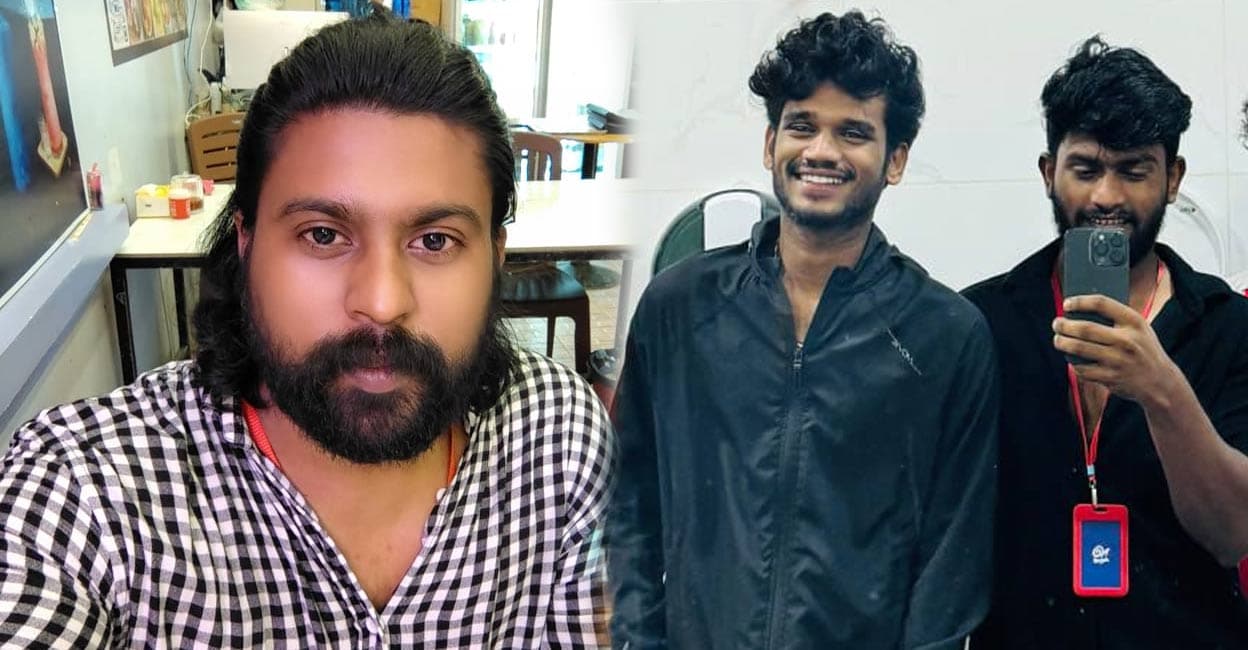Malayali youths tortured in Cambodia when they refused to scam elderly SBI account holders

Mail This Article
Kozhikode: Cheated off their money, tortured physically and mentally for days and forced to scam elderly people, seven Malayali youths felt that they would never return home from Cambodia.
Tricked into accepting jobs in Chinese companies that operate out of Poipet in Cambodia, these Malayali men lived as cyber slaves till a lucky break helped them escape to safety. Back in Kerala, they spoke to the media about their ordeal. Aswant Babu TP, Semil Dev, Abhinav Suresh, and Arun S A from Kurunthody at Maniyur; Abhinand CP from Vatakara; Roshan Antony from Manjali near Angamali; and Ajmal MT from Ponnani said they were offered jobs in an advertising company in Thailand but were forced to join a Cambodian company that scammed people online. They recorded their statements with Kalamassery police on Sunday.
They said that nearly 300 companies owned by Chinese people run scamming rackets targeting Indians holding SBI accounts aged between 60 and 80. "These companies earn up to Rs 3 or 3.5 crore daily," one of them said.
"We were tortured daily for refusing to scam others. After quitting our jobs, we left Kerala with dreams of starting a new career abroad. Now, we don't have jobs or any money, and we had to face physical and mental torture for several days. We are lucky to be alive and back home safely," one of the youths said.
Abin Babu from Perambra, the eighth group member from Kerala, is still in Cambodia. The scamsters did not hire him initially, stating he had not cleared the interview.
Trapped by scamsters
A group including Anurag Thekke Malayil and Athirat Sreenivasan from Thodannur, near Vatakara, Mohammed Rasil Valiya Kunnummal from Mantharathur, Puthuppanam near Vatakara, and Nasarudheen Sha of Koottanad, Malappuram approached the youths offering them jobs in a sales and advertising company named Infinite International in Bangkok. The four-member Malayali agency received $2,500 to 2,800 per person from the Chinese company for recruiting the boys from Kerala, the escaped youths said.

Anurag was friends with many in the cheated gang, and Nasarudheen Sha is Ajmal's cousin. They paid $540 and Rs 5,000 to get the job directly to Anurag and the team. Further, to reach Thailand and later to Cambodia, they had to spend Rs 1 lakh more.
They departed in three groups and took flights to Bangkok from Bengaluru and Kochi in the first and second week of October. Once they reached Thailand, the agency representatives told them the company's office was in a border city.
But on reaching Poipet, they realised that they had been trapped. The office building stood in a remote place in a closed, vast land. The office carried a restaurant's name. They had to train for a week before being deployed to scam people. They also had to learn a script of conversation by heart and figure out tricks and loopholes to swindle money from unsuspecting elderly.
Various ways to swindle money
Chinese companies acquire contacts of SBI account holders with the help of agents in India. Then scamsters, pretending to be SBI officials, call and tell the account holders that they have spent Rs 1 lakh on their credit card. If a customer refuses to acknowledge this claim, they would say that someone else was using a fake card using the account holder's Aadhaar number.
To "redeem the money spent", the account holders would be connected to a police officer on a video call. The fake police would lead them to believe that they have been involved in money laundering and extract money from them to 'settle' the case.
Days of torture
Upon understanding it was a scam centre and not an advertising agency, the men stated their unwillingness to work for the company. Infuriated with their refusal, as the Chinese guys claimed they had to pay $2,500 to $2,800 per person to bring them to Cambodia, the Malayali men were locked in a room and tortured. On the first day of harassment, they were not allowed to sit. They were hit with iron rods and liquor bottles on their legs, head and abdomen. They were rarely given food. They were given a bottle to relieve themselves, and if they spilt anything, they would be tortured again. This went on for a week, the youths said.
The scamsters seized their mobile phones, electronic gadgets, money, and valuables. They assaulted Arun for hiding a mobile phone inside his shoe. Ajmal fractured his left hand and had to undergo surgery on his return.
However, they managed to contact Anurag, Mohammed Rasil and Nasarudheen Shah and informed them about their ordeal. But they refused to help. Scamsters were infuriated when they found out they had contacted their job agency. As a punishment, they were taken to another dark room and tortured for two days.
Then, they decided to sell the men to another company to redeem the money spent on them. A taxi driver was entrusted with their transport. On the way, the Malayali youths managed to snatch their passports from the driver and run away. As they boarded a Tuk Tuk, the taxi driver blocked their path. But the group begged and convinced the driver to take them to the Indian Embassy in Combodia.
After all the procedures, the Embassy officials served food and provided them shelter for a day under the instruction of the Ministry of External Affairs. The Kerala State Government and Norka also ensured their safe return. Upon their arrival, they filed different complaints at the Nedumbassery Airport police station, which will later be shifted to their respective stations.
Concerned about Abin
"Abin Babu, who accompanied me, is still in Cambodia. He is with Anurag and the team. He assured his family that he is safe; however, we have concerns about whether he was coerced into making that statement in the video or unaware of the actual situation there," said Semil Dev to Onmanorama.
"Abin's family lodged a complaint against me at Perambra police station as we went together for the job," he added.
Seven of the eight job seekers reached Kerala on Sunday. They have recorded their statements with Kalamassery police.


